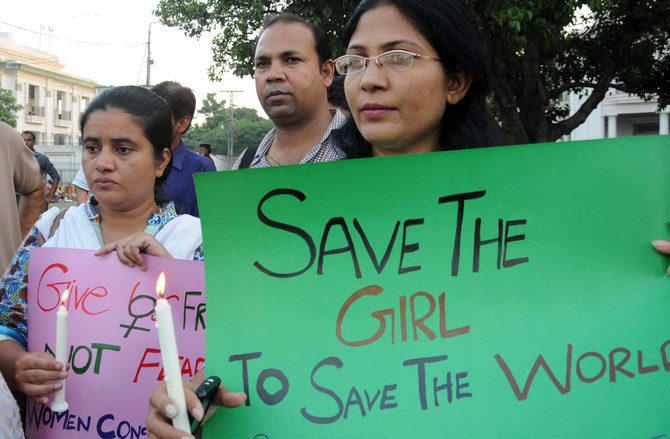ISLAMABAD: Jailed former prime minister Imran Khan’s party said on Tuesday that it has finalized all preparations for a “strong and large” protest on Aug. 5, with Khyber Pakhtunkhwa (KP) Chief Minister Ali Amin Gandapur set to lead the main rally in Peshawar.
Khan’s Pakistan Tehreek-e-Insaf (PTI) party announced a 90-day “do or die” protest movement on July 13, saying it would peak on August 5, the second anniversary of Khan’s arrest.
The PTI has staged several protests in recent years to secure Khan’s release and demand an audit of the February 2024 general election, with a number of demonstrations resulting in clashes with law enforcers and in some cases paralyzing the capital Islamabad for days.
Pakistan’s election authorities deny the allegation of election irregularities, while the federal and Punjab governments have repeatedly warned in recent weeks that they would not tolerate any form of violence, accusing the PTI of trying to derail efforts for sustainable economic growth.
“We have completed our preparations and instructions have been issued to all district-level leaders to mobilize the public,” CM Gandapur told media on Tuesday, adding the party would move forward with its protest plan.
“I will lead a historic and the largest rally in Peshawar and other districts in the province will also arrange their rallies.”
Arab News reached out to the information and interior ministries in Islamabad and Punjab for comments on the government’s strategy to respond to the protest call but did not receive a response by the time of filing of this story.
Speaking to Arab News, Syed Zulifkar Bukhari, a close Khan aide, lamented arrests of supporters and disqualification of PTI lawmakers ahead of the protest, criticizing the Election Commission of Pakistan (ECP).
“The ECP has been biased toward the PTI since the times when polls were conducted and well before too. Disqualification [of lawmakers] on the basis of false charges and politically motivated cases will cause more unrest in the country, in an already highly volatile situation.”
Pakistan’s election regulator this week disqualified PTI Senator Ijaz Chaudhry, Member of National Assembly Muhammad Ahmad Chattha, and Member of Punjab Provincial Assembly Ahmad Khan following their convictions by an anti-terrorism court in cases relating to May 9, 2023 protests, when hundreds of Khan supporters attacked government and military installations over the ex-premier’s brief arrest on graft charges.
Khan’s party termed the ECP’s decision “biased,” saying its lawmakers were not even issued notices before disqualification. In a statement, the ECP rejected the allegations of biasness, saying the three lawmakers had been convicted by the anti-terrorism court and their sentences were still in effect.
Bukhari expressed hopes that a large number of people would respond to their call for protest on Aug. 5.
“We are hopeful this time not only a large gathering from across the country will stage the protest to record their concern over illegal incarceration of former prime minister Khan and [his wife] Bushra Bibi, but also that the cornered quarters will heed to the solidarity at display,” he said.
But analysts were skeptical of an impressive show of political strength by Khan’s party, amid “internal fragmentation.”
“I still hope that sanity will prevail and PTI will call off the protest on August 5,” Ahmed Bilal Mehboob, president of the Islamabad-based think tank Pakistan Institute of Legislative Development and Transparency (PILDAT), told Arab News.
“It may not be a very impressive show for a variety of reasons and the process of fragmentation in the party may be hastened if it is not a huge affair.”
Reports of rifts within the PTI emerged after CM Gandapur announced the 90-day protest drive against the government on July 13. The protest call appeared to contradict an earlier call for a nationwide protest posted on Khan’s official X account, set to culminate on August 5.
Speculation about differences within the party further grew after PTI Punjab’s chief organizer Aliya Hamza Malik voiced concerns on X about a lack of clarity around the protest campaign, questioning the origins of the 90-day plan and seeking details on the party’s strategy to secure Khan’s release.
Dr. Huma Baqai, another political commentator, said a possible government crackdown would deter mass mobilization and affect public participation in the protest.
“The PTI is too fragmented and facing a leadership crisis, yet it still evokes insecurities within the sitting government and perhaps even the establishment, leading to numerous arrests that are likely to have an impact,” she told Arab News.
“Interestingly, Jamaat-e-Islami has announced a rally for Palestine and Kashmir on the same day, a move seen as aimed at creating both confusion and diffusion.”















